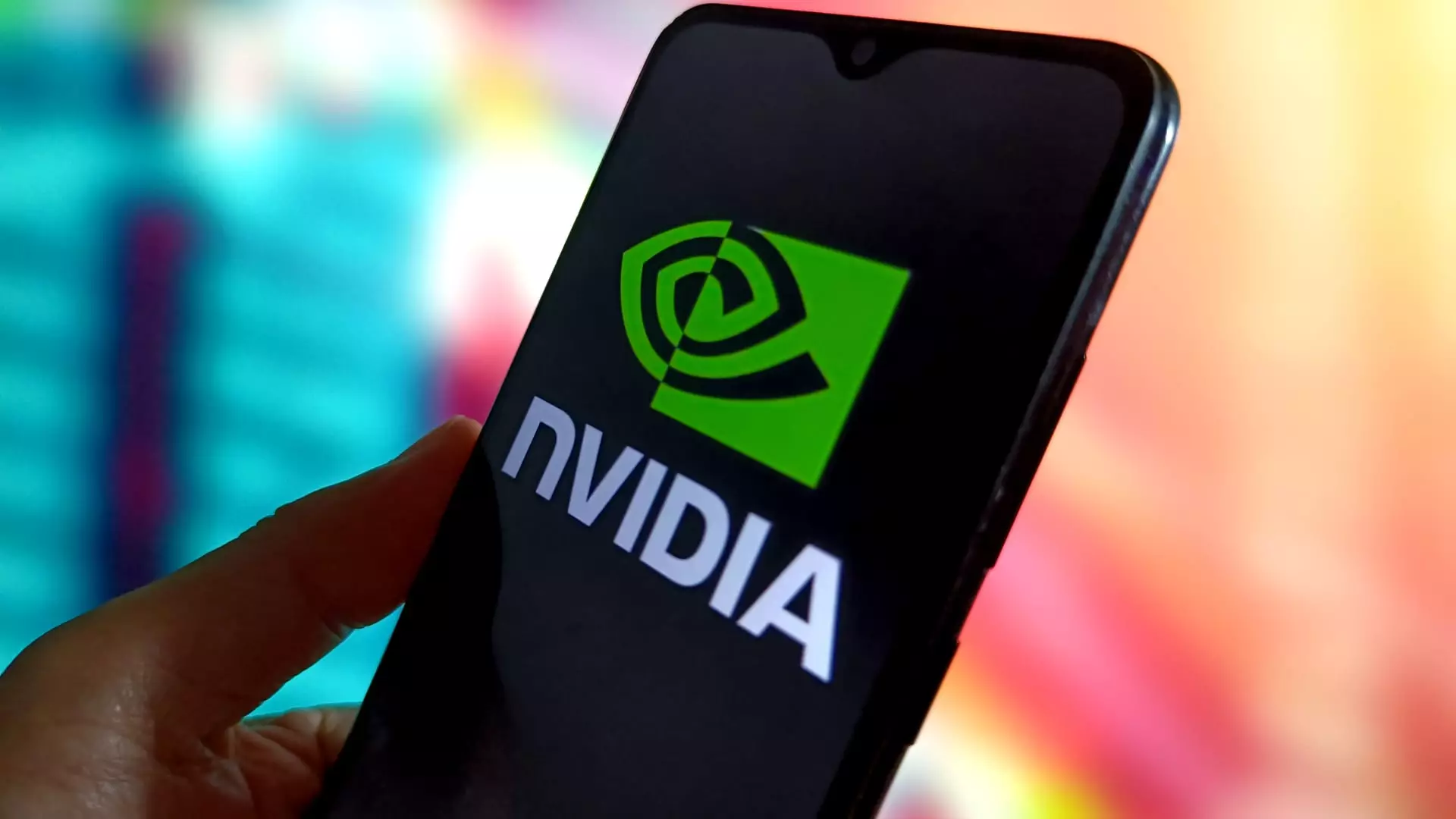The semiconductor industry has always been a volatile one, but recent events surrounding Nvidia have highlighted an intriguing dynamic between retail investors and institutional market forces. Despite a staggering $600 billion drop in Nvidia’s market capitalization sparked by the emergence of a competitive artificial intelligence (AI) model from a Chinese startup, retail investors have demonstrated unwavering support for the chipmaker. This article explores the implications of these actions and what they reveal about the changing landscape of investment strategies in the current financial climate.
On an otherwise tumultuous Monday, Nvidia faced its most significant one-day drop since the early pandemic days, plummeting approximately 17%. This decline was triggered by news from DeepSeek, a startup emerging from China that presented an AI model outperforming established U.S. counterparts economically and in terms of speed. Such developments raise critical questions about the trajectory of U.S. dominance in artificial intelligence, a sector in which companies have invested extensively and which the government has identified as a strategic priority.
The comparison to historical moments, such as the advent of the Space Race initiated by the Soviet Union’s launch of Sputnik, underscores an alarming sentiment among industry experts and government officials alike. With the announcement of President Trump’s ambitious multi-billion dollar AI project, Stargate, merely days before this market shake-up, the juxtaposition of U.S. intentions and emerging global competition could not be more pronounced.
Despite the grim news surrounding Nvidia, the retail investors—otherwise known as mom-and-pop traders—were quick to counteract market pessimism by pouring an astonishing $562 million into Nvidia shares on that same Monday. According to Vanda Research, this represented an all-time high for daily net inflows into Nvidia, highlighting a stark divergence in sentiment between retail and institutional investors.
Institutional players, who collectively dumped shares of Nvidia to mitigate losses, seemed to operate under the fear that the emergence of DeepSeek would significantly undermine the trajectory of Nvidia’s growth. However, the unwavering spirit of everyday investors reveals an emerging trend of resilience in the face of market adversities, reminiscent of the meme stock phenomena that characterized retail trading during the pandemic’s peak.
The online trading community has also played a pivotal role in shaping investor sentiment. With Nvidia becoming the most-discussed stock on the WallStreetBets subreddit, mentions skyrocketed by over 175% amid the stock’s plummet. Posts, including one humorously captioned “in Huang we trust,” reference Nvidia’s CEO Jensen Huang, portraying a collective solidarity among retail investors that seems to transcend mere financial transactions.
In communities such as WallStreetBets, narratives and camaraderie can significantly influence investment behavior. Retail investors are emboldened by a sense of belonging and community, enabling them to position themselves against institutional investors, whom they often perceive as being out of touch with the enthusiastic spirit of the market.
Perhaps what stands out most about this episode is the evolving relationship between retail investors and the broader market. Unlike the early days of meme stocks, where enthusiasm led to significant price movements in relatively low-market-cap companies, Nvidia possesses a market valuation close to $3 trillion. The sheer scale indicates that while retail investors may not have the power to single-handedly sway the price dramatically, their consistent buying behavior serves as a notable counterbalance to institutional selling.
This divergence elucidates a more measured approach among retail investors today—one not solely motivated by speculative fervor but grounded in a belief in the long-term potential of the technology underlying these stocks. Instead of mere trend-following, a calculated, steadfast belief in companies like Nvidia becomes more prevalent, even amidst significant adverse market conditions.
As competition in the AI landscape intensifies and external factors challenge established players like Nvidia, the response of retail investors will be crucial in the narrative of market resilience. The current situation has shed light on the evolving dynamics of investing strategies, suggesting that retail investors are increasingly independent and assertive. Their engagement was not merely a fleeting trend but an indication of a shifting paradigm in financial markets, where individual voices matter as much as institutional power. With community-driven investment behavior emerging strongly, it will be fascinating to watch how retail investors will continue to shape the market narrative in the months to come.


Leave a Reply